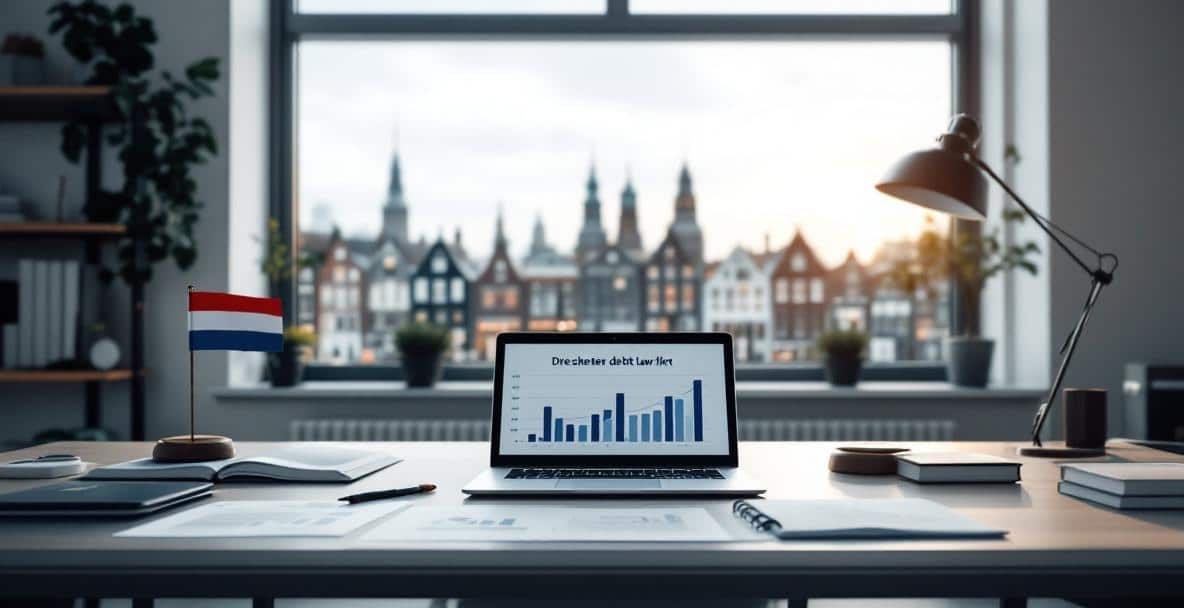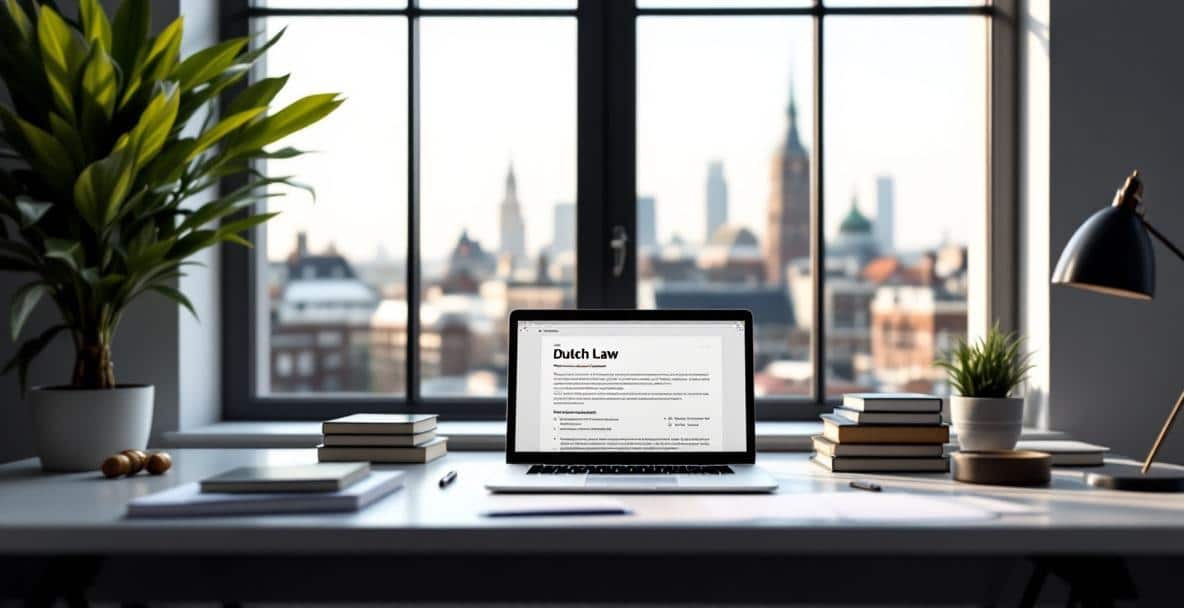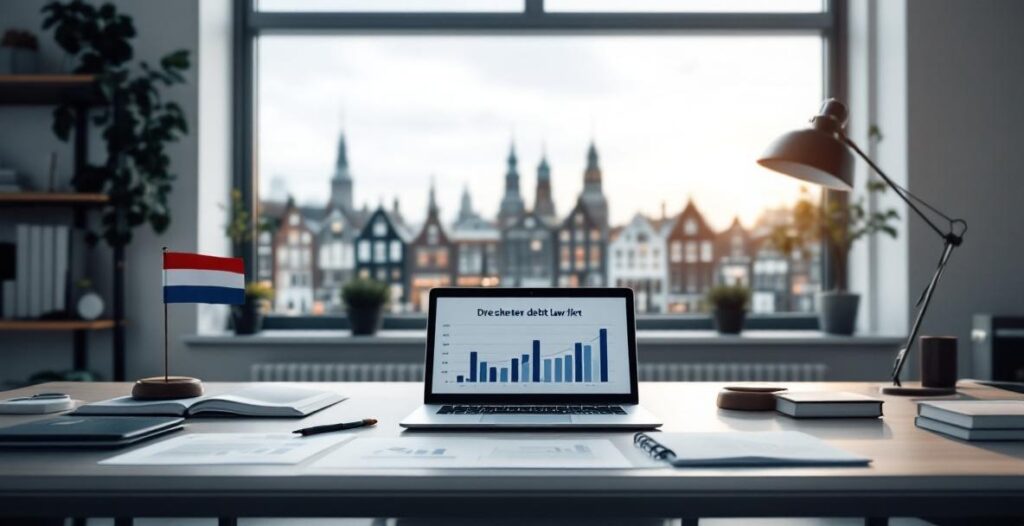Debt collection in the Netherlands is tricky if you are not familiar with its legal maze and business customs. Businesses and individuals must learn that Dutch laws protect both sides, offering solid rights for creditors and careful safeguards for debtors. Using smart strategies and keeping in line with these strict rules is the best way to get the money you are owed.
Getting Started: Tackling Debt Collection in the Netherlands

Here in the Netherlands, debt collection is built on a clear process that tries to be fair to both parties. The rules protect creditors and also shield debtors with strong safeguards. As the economy shifts, the challenges of recovering unpaid money change too. At Law & More, we help clients navigate these twists with a hands-on approach to debt recovery. Knowing the ins and outs-from cost setups to strict deadlines-can really make the difference between success and frustration.
What You Need to Know About Dutch Debt Collection Laws

Dutch law is straightforward when it comes to collecting debts. The rules balance creditor rights with protections for debtors, and the Dutch Civil Code is your guide for what you can and cannot do.
Before you take legal action, you are required to send a formal notice of default, called ingebrekestelling in Dutch. This step gives the debtor a fair chance to settle their bill. Skipping it or getting it wrong might hurt your chance to claim extra costs or interest later on.
If a payment is delayed, statutory interest may be charged, though the rates differ. Business deals usually carry a higher interest than consumer transactions, reflecting the different expectations in these relationships.
What the Wet Incassokosten (WIK) Means for Collection Costs
The Wet Incassokosten (WIK), which started in 2012, changed the game for debt collection. It sets clear limits on how much you can charge a debtor and originally aimed at consumer debts, though its effects reach business-to-business deals too. This law keeps fees transparent and helps prevent outrageous charges.
Under the WIK, collection fees follow a sliding scale based on the original debt. For debts up to €2,500, you might charge about 15% of the amount, with a minimum fee of €40. For larger debts, the percentage drops gradually. These clear guidelines help avoid disagreements and give everyone a predictable framework.
The WIK also requires a 14-day gap after a payment reminder before extra charges can be added. This notice must clearly explain what fees will be imposed if the debtor does not pay by the deadline.
How Consumer Protection Helps Keep It Fair
Dutch laws strongly guard consumer rights when money is owed. Acts such as the Consumer Credit Act and the Consumer Protection Enforcement Act set strict rules for contacting individual debtors.
These rules limit how often collectors can reach out, prohibit threats or misleading statements, and demand clear communication. This fairness is crucial for international businesses too, since practices acceptable elsewhere might not meet Dutch standards.
Smart Strategies for Getting Your Money Back

If you want to recover debts in the Netherlands, combine strong legal know-how with practical tactics. At Law & More, we have learned that prevention, clear communication, and timely escalation are the best tools.
It all starts before a debt ever occurs. Setting clear payment terms, checking clients’ credit, and using proper invoicing can help avoid problems later. Courts tend to favor those who keep detailed records and take steps to prevent disputes.
When chasing overdue payments, a steady and professional tone goes a long way. Keep track of every call, email, and letter, and never stray from the legal rules-even when a debtor is difficult. For more insights, check out our guide on professional international debt collection.
Building a Personal Connection with Debtors
It might sound odd, but the best way to collect debts is often through good relationship management rather than forceful tactics. In the Netherlands, people value honest and straightforward talk; a friendly nudge can work better than immediately resorting to legal measures.
When a payment is overdue, start with a gentle reminder-a quick phone call or email can clear up misunderstandings. Often, delays are simple oversights, and a polite reminder can resolve the issue without harming the business relationship.
If gentle prompts do not work, it’s time to get more formal. Send a formal notice of default (ingebrekestelling) that states the owed amount, refers to the original agreement, and sets a clear deadline (typically 14 days). This notice should also spell out any extra charges if payment is not made.
How Technology Can Boost Your Collection Efforts
Today’s technology offers tools that make chasing debts less of a hassle. Smart systems like automated reminders and invoicing software can boost your collection success while saving time and money.
A dedicated CRM for credit management can work wonders. It keeps a record of payment histories, stores all communications, and even warns you early when a problem is brewing, so you can step in before matters worsen.
If you work across borders, translation tools and multi-currency payment systems are real game changers. They help your Dutch clients understand their bills and pay in the way that suits them best, which can really speed up the recovery process.
When to Call in Professional Help for Debt Collection
If your own efforts fall short, sometimes it pays to call in the pros. Specialized agencies and law firms, like Law & More, understand the Dutch system and local business practices inside and out.
Expert debt collectors have clear advantages. They can negotiate on your behalf, represent you in court if necessary, and their involvement often shows debtors that you mean business.
When picking a collection partner, look for one that sticks to ethical principles and follows Dutch law rigorously.
At Law & More, we mix legal know-how with real-life experience. We understand that every case is unique, so we tailor our approach to fit your specific needs. Our team speaks several languages, which is a huge asset for international clients dealing with Dutch law.
Tackling Common Challenges in Debt Collection

Handling Debtors Who Avoid Payment
It can be really frustrating when a debtor goes silent or dodges your calls. They may ignore messages or change their contact details to avoid paying up. Sometimes companies even restructure on purpose to escape their obligations.
When a debtor avoids you, keeping detailed records is your best defense. Note every call, email, and letter along with dates and details. Good documentation can be crucial if the matter ends up in court, proving that you made every effort to resolve it amicably.
If a debtor has moved or changed their contact info, you might need skip-tracing services to track them down. In the Netherlands, legal channels like the Municipal Personal Records Database help verify current addresses.
If you know the debtor can pay but still refuses, firmer action may be required. This could involve applying for a European Order for Payment in cross-border cases or asking Dutch courts to freeze their assets. Such steps help protect your interests and stop debtors from offloading their belongings before a judgment is reached.
A recent report from NL Times shows that many agencies are still adapting to new rules aimed at protecting debtors, making it vital to work with firms that stay updated.
Handling Disputes Over Debts
Sometimes debtors claim they never owe the amount you demand. They might argue that the product or service fell short of expectations or point to vague contract terms.
When a debtor challenges your claim, start by examining their argument closely. Often, meeting halfway is less costly than a long legal battle. Dutch business culture leans toward practical resolutions, and courts tend to favor fair settlements.
If discussions break down, formal dispute resolution might be necessary. In the Netherlands, you can go to court, opt for arbitration, or try mediation-each method has its own benefits and costs.
At Law & More, when we advise clients on complex tax issues or family business debt problems, we consider the amount at stake, the strength of your documentation, and the importance of maintaining the business relationship. This helps us choose the best resolution method.
International clients may find these processes even more challenging. Specialized assistance for international companies can be invaluable, offering both legal advice and insight into local business customs.
Wrapping Up: Getting the Debt Collection Results You Need
Successfully collecting debt in the Netherlands means balancing legal know-how, clear communication, and timely action. When you know the ins and outs of Dutch law-from the WIK to consumer protections-you can claim what you are owed without falling into common traps.
Stopping problems before they start is always cheaper and less stressful. Clear contracts, careful credit checks, and proper invoicing can greatly reduce payment issues. And if a debt does arise, quick and respectful communication often resolves the matter without the need for formal legal steps.
Need help with debt collection in the Netherlands? At Law & More B.V., our team of specialized lawyers is ready to walk you through every step. From drafting the first demand letter to representing you in court, we are here to ensure you recover what you are owed. Contact us today and let our multilingual experts help you navigate Dutch law and recover outstanding debts.
